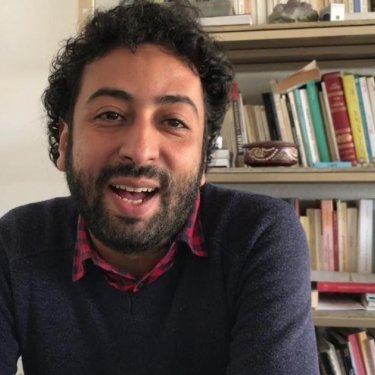Morocco : the numbers that sum up the judicial harassment of Omar Radi

Twelve summonses for three different offences, four legal procedures against him, a hundred hours of interrogation in four weeks – that is what it took to put Omar Radi behind bars a month ago. These are the figures that add up to the judicial harassment of the Moroccan journalist and human rights campaigner.
The 34-year-old activist, due to go on trial on 22 September, has been held in custody since 29 July accused of sexual assault and espionage. He insists that he has been set up. Whatever the grounds for each of these cases, the timing of the complaints and the way the facts and figures have been assembled prove that he is the victim of judicial harassment.
For more than 10 years, Radi has been investigating sensitive subjects which have made him a target of the Moroccan regime. He has co-directed a documentary on the Hirak protests in the northern Rif region and has worked for a number of Moroccan and international media organizations, investigating such subjects as corruption, the rentier economy, predatory landlords and collusion between the authorities and financial interests.
In 2013, his investigation into Moroccan sand quarries, which exposed the lack of transparency in the licensing system won the AMJI investigative journalism award at the. He was honoured by the Thomson Reuters Foundation in 2015 and the following year published data that led to the “servants of the state” scandal, implicating influential public figures in Morocco.
Forty-eight hours
This was the time between revelations by Amnesty International on 22 June that he had been targeted by spyware of the NSO security firm (available only to governments) and the first espionage allegation against him. On 24 June, the Moroccan prosecutor’s office announced it had opened an investigation into Radi on suspicion that he had received “funds from abroad in connection with intelligence services”.
Three separate charges
Eleven days later, on 5 July, he was detained for questioning about “public drunkenness and violence” after an argument with two journalists of Chouf TV, a news website believed to be close to the government. According to his lawyer, they “had been stalking, filming and intimidating him” for several days. On 28 July, he was questioned for the umpteenth time, this time on new grounds, namely an allegation by a former colleague of rape and sexual harassment. Radi protested that they had had consensual relations.
This amounts to a great many allegations in a short space of time.
Twelve summonses and one brief arrest
Between 22 June and 28 July, a period of five weeks, Radi was summoned for questioning 12 times about the spying allegations and receiving funds from abroad in connection with intelligence services and was briefly arrested once for public drunkenness and violence.
Nearly 100 hours of questioning
Since he was first summoned on 22 June, Radi has undergone 97 hours of questioning by the police.
Four weeks
After four weeks of police and judicial harassment, during which he was accused of a range of serious offences, Radi was imprisoned on 29 of July.
Four legal procedures since December
Morocco’s justice authorities have had Radi in their sights since last year. On 26 December, the journalist was locked up for the first time for a tweet he posted eight months previously condemning the harsh penalties imposed on “Hirak” protesters in the northern Rif region. He was released on bail on 31 December then, after the hearing was postponed several times, he was given a four-month suspended sentence and a 500-dirham (47-euro) fine for allegedly insulting the judge.
Two trials in 48 hours
His trial on the charges of rape and receiving funds from abroad with the aim of undermining the security of the state is due to start on 22 September in a Casablanca court. A second trial for public drunkenness, insults and filming someone without their consent is set for 24 September. That amounts to two trials in 48 hours
Between 10 years and life imprisonment
If Radi is found guilty of undermining national security, he could face imprisonment of between 15 years and life. If he is convicted of sexual assault he could be sentenced to up to 10 years behind bars.
Three smear campaigns
When the Amnesty International report was published, several media organizations close to Morocco’s intelligence services posted defamatory allegations that the journalist had received funds from abroad. On 16 July, 110 Moroccan journalists signed an appeal to the authorities to take action against “defamatory media” which libelled critical voices like Omar Radi’s with impunity
113
Morocco’s ranking out of 180 countries in the latest edition of the World Press Freedom Index published by RSF.



